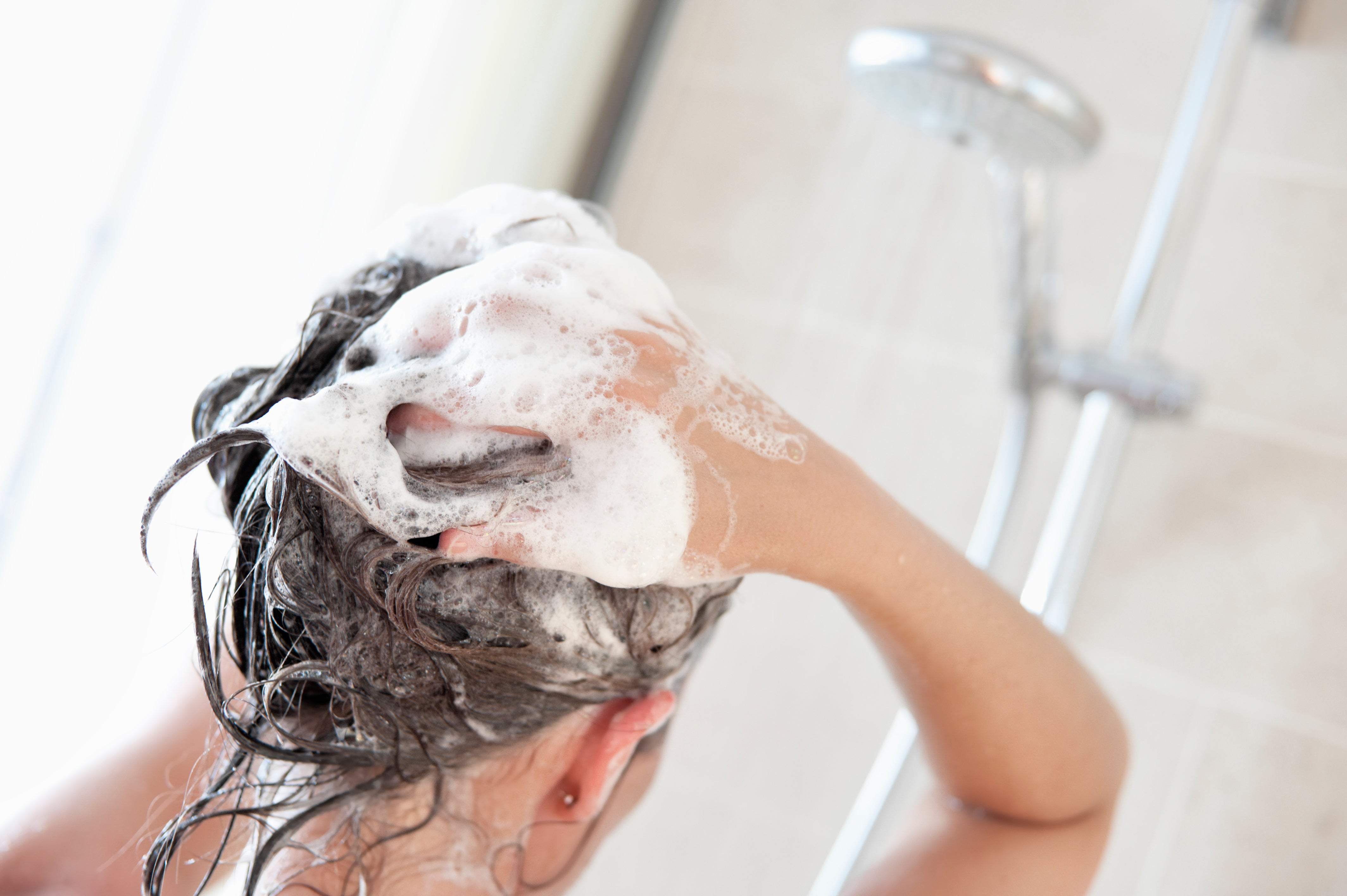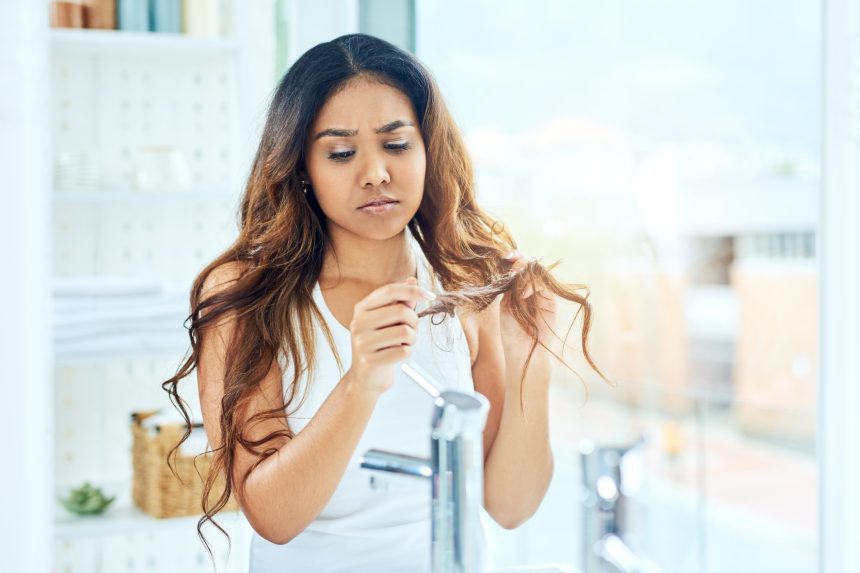Your support helps us to tell the story
From reproductive rights to climate change to Big Tech, The Independent is on the ground when the story is developing. Whether it’s investigating the financials of Elon Musk’s pro-Trump PAC or producing our latest documentary, ‘The A Word’, which shines a light on the American women fighting for reproductive rights, we know how important it is to parse out the facts from the messaging.
At such a critical moment in US history, we need reporters on the ground. Your donation allows us to keep sending journalists to speak to both sides of the story.
The Independent is trusted by Americans across the entire political spectrum. And unlike many other quality news outlets, we choose not to lock Americans out of our reporting and analysis with paywalls. We believe quality journalism should be available to everyone, paid for by those who can afford it.
Your support makes all the difference.
Feel like every day is a bad hair day? Perhaps your mane is looking less crowning glory, more scarecrow mop every time you look in the mirror? You might spend an inordinate amount of time cursing your poor hairdresser or bemoaning the fact that none of your styling products seem to be working. But have you stopped to consider that the real culprit may be a stealthier villain? Could something as innocuous as water be to blame?
Recently, hairdressers in Bristol have been, well, tearing their hair out over concerns that the city’s hard water might be impacting their clients’ tresses. It might sound like an oxymoron, but water is described as hard when it contains high levels of minerals. One local stylist, Kelly Hill of Yours Truly hairdressers, told BBC News that one of her client’s hair “has been falling out and the quality of her hair has come down” ever since she arrived in the South West for university; others who are new to the area often suffer from similar problems, said Hill. For their part, Bristol Water stated that they “have not received any reports of these effects” and recommended anyone worried to consult their GP.
And yet if you’ve ever travelled somewhere new to find that your once glossy locks suddenly look lacklustre, greasy, and generally disappointing, you might be nodding in recognition, just like I did when reading Hill’s concerns. When I lived in London, a hard water hotspot, I had to wash my hair every other day without fail, otherwise it’d start looking dull and frizzy. It also wasn’t long after a hairdresser’s appointment before my newly blonde colour developed a brassy, yellow hue. No amount of purple toning shampoo seemed to help.
Then a few years ago, I moved to the nothwest of England, where the water is much softer. Ever since, my hair has looked and felt healthier, and needs washing far less frequently. I could tell you about how I no longer need to regularly descale the kettle, too, but I can already feel your eyes rolling at the smugness.
“The interesting thing about hard water’s impact is that you might not realise its effects unless you’ve experienced both hard and soft water,” says Deborah Maguire, a trichologist (that’s an expert in hair and scalp health) and co-owner of the Love Hair salon. She grew up using water from Elan Valley in Wales, which is known for being especially soft, so when she moved to the hard water hellhole of the Cotswolds, “it was a shock”.
Calcium and magnesium are absorbed into water when it passes through rocks like limestone and chalk. In the UK, much of our tap water originally comes from surface water: think reservoirs, lakes, rivers, and streams. This type of water hasn’t been exposed to rocks for long enough to start accumulating those minerals, so it remains soft. But some of the H2O that streams from the nation’s taps is sourced in a different way, after groundwater is formed when rainwater seeps into the ground and flows into porous rocks and sediments called aquifers. The carbonic acid in rainwater, which occurs when atmospheric CO2 dissolves into the droplets, then reacts with and dissolves minerals in the rocks, resulting in hard water.
Now with the chemistry lesson out of the way, it’s time for a little geography. Water in the South and the East of England tends to be harder, thanks to geology. The rock formations in those regions are mainly formed from limestone and chalk. In the North and West, meanwhile, they’re often composed of granite, which is non-porous, so water doesn’t penetrate the ground and stays soft. Most of Scotland is blessed with softer water, too, as is a lot of Northern Ireland.
Want to know what the water is like in your area? The Drinking Water Inspectorate has a handy map, and there are plenty of websites that give you a breakdown of your local supply based on your postcode. That said, you can get an inkling simply from the amount of soap scum and mineral residue that accumulates on your sinks and tubs.
For all the damage hard water can do to your hair, both types are completely safe to drink: in fact, some research even suggests that harder water might help support bone and heart health. It’s a trade-off given the taste, however, which tends to have a stronger, more chalky flavour.
It’s not only your hair you’ve got to worry about, because while it’s totally fine to sip on, hard water can “strip away natural oils” from the skin. Doing so can lead “to dryness [and] irritation, as well as potentially worsening conditions such as eczema and psoriasis”, explains Dr Anjali Mahto, consultant dermatologist and founder of Self London clinic. In fact, some studies have linked harder water to an increased risk of developing eczema in childhood. And, Mahto adds, “it can also leave a residue of soap on the skin, disrupting the skin barrier and increasing sensitivity, which may trigger breakouts, particularly for those prone to acne or rosacea”.
Mineral deposits from hard water may accumulate on the hair shaft, leading to dryness, dullness and brittleness
Iain Sallis, trichologist
Similar reasons are to blame for hair damage. “Mineral deposits from hard water may accumulate on the hair shaft, leading to dryness, dullness and brittleness,” explains Iain Sallis, trichologist at the Farjo Hair Institute. This build-up, he says, “may make hair more prone to tangling and frizz”, and might also “irritate the scalp, potentially causing dryness and itchiness”. Plus, hard water “can cause colour-treated hair to fade more quickly and may lead to a brassy or uneven tone”, Sallis adds. “Mineral deposits can cause hydrogen peroxide to accelerate, in some cases leading to aggravated hair damage from bleaching.” No wonder, then, my hair felt so straw-like during my London stint. But, Sallis notes, the “current scientific research does not conclusively link hard water to direct hair loss”. At least that’s something.
So aside from upping sticks to a different postcode with a softer water supply – hardly the most accessible solution – what can we do to mitigate the effects and save our hair? You might find yourself wanting to wash it more, but rather than upping the frequency, Maguire recommends switching up your technique.

“Hard water can make shampoo less effective, meaning you may need to use more product – especially for the first wash – to properly cleanse your hair,” she says. But instead of harsh scrubbing or excessive rewashing, she recommends “applying your shampoo and letting it sit for one to two minutes before massaging it in, to give the ingredients time to work”. The key “isn’t multiple washes but ensuring a thorough rinse to remove build-up effectively”, adds Maguire. Used once a week, a clarifying shampoo can help to strip away some of the mineral build-up, too.
And if you’re really suffering from dryness or eczema, it might be worth splashing out on a shower head filter, which can screw onto your appliance relatively easily. You might have already seen brands such as Hello Klean popping up on your Instagram feed. “Hard water can exacerbate eczema by weakening the skin barrier, leading to increased dryness, irritation and inflammation,” says Dr Mahto. “By filtering out minerals and chlorine, shower filters may help to minimise these triggers, making them a worthwhile investment for those with sensitive skin.”
These tips should make a difference to your hair health – and extend the life of your dye job, too. Your water might be hard, but your routine doesn’t have to be. With a few tweaks, better hair days could be just around the corner.







